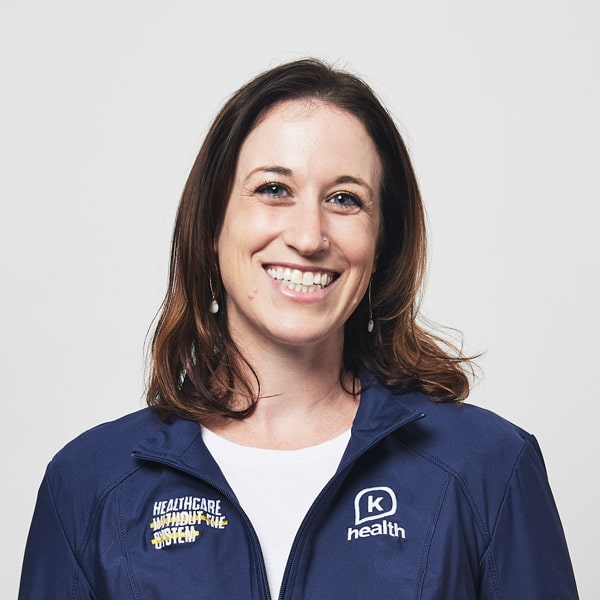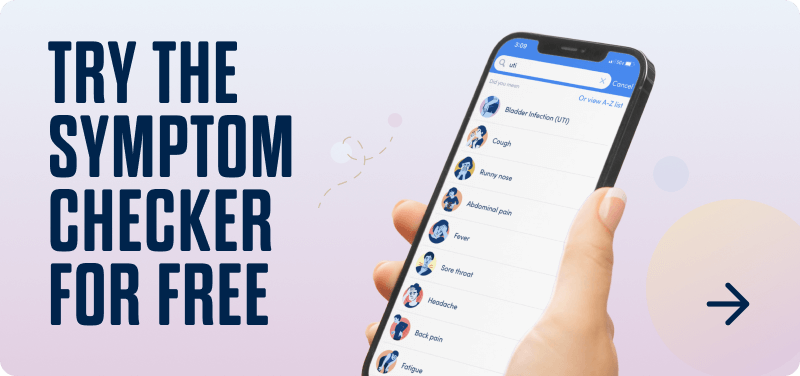Effexor is a brand name for a prescription medication called venlafaxine.
Venlafaxine is a type of antidepressant called a serotonin-norepinephrine reuptake inhibitor, or SNRI.
SNRIs work by rebalancing chemicals in your brain called neurotransmitters.
By doing so, the medication can improve your mood, sleep, appetite, and energy levels, among other things.
It is used to treat many psychiatric conditions including depression, anxiety, and panic disorders.
It is also sometimes used to treat ADHD and obsessive compulsive disorder.
Effexor, like many antidepressants, doesn’t interact well with specific medications and other substances.
One of those substances is alcohol: Both Effexor and alcohol can impair mental and motor skills and may exacerbate each other’s effects.
In this article, I’ll discuss how Effexor works, why doctors remain cautious about mixing the medication with alcohol, and what kinds of side effects you might experience while taking your prescription drug.
What is Effexor?
Effexor is a brand name version of venlafaxine, a type of antidepressant called a serotonin-norepinephrine inhibitor, or SNRI.
It’s used to treat anxiety and depression, among other psychiatric conditions.
Effexor is available in two forms, an immediate-release tablet that comes in five dosage strengths (25 mg, 37.5 mg, 50 mg, 75 mg, and 100 mg), and an extended-release tablet called Effexor XR that comes in three dosage strengths (7.5 mg, 75 mg, and 150 mg).
The generic version of Effexor is called venlafaxine.
The generic and brand name versions contain the same active ingredient and are equally effective.
The generic is usually more affordable.
The recommended starting dose of Effexor is 75 mg for most patients.
However, your doctor or mental health provider may suggest another amount based on your personal medical history and the severity of your symptoms.
Effexor uses
Doctors use Effexor to help patients manage behavioral health, mood disorders, chronic pain, and other health conditions.
The Food and Drug Administration has approved it for the treatment of major depressive disorder (MDD), generalized anxiety disorder (GAD), social anxiety disorder (social phobia), and panic disorder (panic attacks).
When appropriate, healthcare providers will prescribe venlafaxine off-label to treat other conditions like attention deficit hyperactivity disorder (ADHD), obsessive-compulsive disorder (OCD), premenstrual dysphoric disorder (PMDD), and post-traumatic stress disorder (PTSD).
On occasion, they may also recommend it for some people who suffer from chronic pain conditions like diabetic neuropathy, migraines, cataplexy, narcolepsy, and hot flashes.
How Effexor works
Effexor works by rebalancing and regulating the chemicals in your brain to improve your mood, increase your appetite, reduce sleep challenges and help you experience a higher quality of life.
Under normal circumstances, your brain uses neurotransmitters called serotonin, dopamine, and norepinephrine as a way to communicate with itself and other areas of the body.
Once these chemicals have carried their message, they’re usually reabsorbed by the brain, a process called “reuptake.”
When you take an antidepressant medication like Effexor, it blocks your brain from reabsorbing the neurotransmitters serotonin and norepinephrine, increasing the amount circulating in your body.
Though researchers are still working to understand the roots of depression and anxiety, clinical studies suggest a connection between the availability of neurotransmitters in the brain and symptoms of depression, anxiety, and other mental and physical ailments.
So when reuptake is blocked, the increased availability of these chemicals can improve mood and decrease symptoms of anxiety and depression.
Effexor begins to work as soon as it enters the body, but most patients don’t notice substantial changes to their appetite or sleep patterns until they have taken their medication for 1-2 weeks.
Within 4-6 weeks, most people report improved depression symptoms and more energy, among other effects.
Effexor and Alcohol
Alcohol affects the central nervous system, depressing brain function, and calming neurotransmitter activity.
As a result, it can counteract the potential benefits of Effexor and can make it more difficult for the drug to work properly.
Even a small amount of alcohol use can significantly increase feelings of anxiety and depression, even if it seems to help those symptoms temporarily. It can also increase the risk of adverse side effects.
Risk of overdose
In 2006, the Food and Drug Administration, along with Wyeth Pharmaceuticals, the manufacturer of Effexor, issued a letter warning healthcare professionals of overdoses among some patients taking Effexor.
They found that those who had overdosed had consumed alcohol or other drugs in addition to Effexor.
Symptoms of overdose listed in the letter included rapid heart rate, loss of consciousness, seizure, vomiting, dizziness, and death.
If you or a loved one is experiencing severe symptoms or is experiencing suicidal thoughts, call 9-1-1 or go to your nearest emergency room for immediate medical attention. You can also get free 24/7 support from a suicide and crisis expert by calling or texting 988. If you’d prefer to chat online, you can chat with a suicide and crisis expert by visiting the Lifeline Chat.
Potential severe side effects
Like other medications, Effexor comes with a risk of side effects, some more uncomfortable than others.
Alcohol consumption while taking Effexor increases the chances of experiencing severe side effects and can make symptoms worse.
The following symptoms are a few you might experience while mixing alcohol use and Effexor:
- Decreased motor function and coordination
- Memory loss
- Reduced attention span
- Difficulty thinking
- Dizziness or vertigo
- Delayed reactions
- Diminished inhibition
- Anxiety, nervousness, or agitation
- Blackouts
- Poor decision-making
- Falls
Because the effects of alcohol and Effexor include significantly reduced mental and motor skills, the Food and Drug Administration says patients who mix even occasional alcohol use with their prescription drug should not drive or operate heavy machinery while under the influence.
Alcohol and depression
Substance abuse is closely correlated with depression.
Many patients who are not receiving adequate mental health care may turn to alcohol and other substances to manage their symptoms and feel better, if only temporarily.
Because alcohol is a depressant, it slows the neurotransmitter activity inside the brain.
As a result, people who drink may feel a slight lift when they first drink, but ultimately alcohol intake only worsens depressive symptoms.
Studies have shown that people with substance abuse disorders often have more severe, prolonged episodes of depression and anxiety—and those who are depressed have worse alcohol abuse problems, too.
Alcohol abuse is also closely associated with increased thoughts of suicide.
Common Effexor Side Effects
Effexor is not for everyone.
Like most medications, it comes with a risk of side effects for certain patients.
Most of the time, side effects are mild and tolerable.
The most common side effects of Effexor include:
- Decreased appetite
- Constipation
- Diarrhea
- Dry mouth
- Excessive sweating
- Headache
- Increased blood pressure
- Increased fatigue
- Insomnia
- Nervousness, agitation, or restlessness
- Sexual dysfunction
- Stomach upset or nausea
In rare cases, Effexor can cause more severe side effects.
Call your doctor if you begin to suffer from any of the following symptoms while taking Effexor:
- Blurred vision
- Changes in your taste or salivation
- Decreased blood pressure
- Eye pain or swelling around the eye
- Increased urination or difficulty urinating
- Irregular menstrual cycles
- Irregular or increased heartbeat
- Mental confusion or difficulty concentrating
- Muscle weakness
- Teeth grinding
Effexor can increase irritability, hostility, and suicidal thoughts, particularly among teenagers and young adults.
If you or someone you know has thoughts of harming themselves or others, call 9-1-1 or go to your nearest hospital for immediate medical attention. You can also get free 24/7 support from a suicide and crisis expert by calling or texting 988. If you’d prefer to chat online, you can chat with a suicide and crisis expert by visiting the Lifeline Chat.
Effexor can cause symptoms if you stop it too suddenly without lowering your dose slowly. If you would like to stop taking Effexor, talk to your provider about a plan to wean off the medication to prevent uncomfortable side effects.
When Can I Start Drinking if I’m No Longer Taking Effexor?
When you decide to stop taking Effexor, your healthcare provider will work with you to figure out how long you will need to taper off the medication safely without putting you at increased risk for developing discontinuation syndrome, also called withdrawal.
They will also be able to advise you on the best time for you to begin drinking alcohol or taking other medications that might interfere with Effexor before it’s left your system.
Effexor is generally out of your system within 12-24 hours, but can continue to have some effects for up to three weeks.
When to See a Doctor for Depression
Feeling temporarily sad, blue, or out of sorts is a normal part of life.
But if you don’t feel like yourself for a period of more than two weeks, it may be time to consider talking to a doctor about your experience.
Common symptoms of depression include:
- Experiencing weight gain or weight loss
- Feeling drained, lethargic, or without energy
- Feeling sad, hopeless, worthless, guilty, or empty
- Feeling unable to experience or anticipate happiness or pleasure
- Feeling uncharacteristically irritable or angry
- Feeling uninterested in activities you once enjoyed
- Having difficulty sleeping (insomnia) or sleeping too much
- Having trouble concentrating, thinking, or making decisions
- Increased nervousness, restlessness, anxiety, or agitation
- Physical aches and pains
- Slowed movement or speech
If you are concerned that you might be experiencing depression, talking to your doctor is the best way to get evaluated, get treated, and get your quality of life back on track.
How K Health Can Help
Think you might need a prescription for Effexor (Venlafaxine)?
K Health has clinicians standing by 24/7 to evaluate your symptoms and determine if Effexor is right for you.
Get started with our free assessment, which will tell you in minutes if treatment could be a good fit. If yes, we’ll connect you right to a clinician who can prescribe medication and have it shipped right to your door.
Frequently Asked Questions
K Health has strict sourcing guidelines and relies on peer-reviewed studies, academic research institutions, and medical associations. We avoid using tertiary references.
-
The Effects of Venlafaxine and Cognitive Behavioral Therapy Alone and Combined in the treatment of Co-Morbid Alcohol Use-Anxiety Disorders. (2013).
https://www.ncbi.nlm.nih.gov/pmc/articles/PMC3981550/ -
Label for Effexor XR. (2017).
https://www.accessdata.fda.gov/drugsatfda_docs/label/2017/020699s107lbl.pdf -
Venlafaxine (Effexor). (2020).
https://www.nami.org/About-Mental-Illness/Treatments/Mental-Health-Medications/Types-of-Medication/Venlafaxine-(Effexor) -
Alcohol’s Damaging Effects on the Brain. (2004).
https://pubs.niaaa.nih.gov/publications/aa63/aa63.htm -
Selective Serotonin Reuptake Inhibitors (SSRIs) Information. (2014).
https://www.fda.gov/drugs/information-drug-class/selective-serotonin-reuptake-inhibitors-ssris-information -
Dietary patterns and depression risk: A meta-analysis. (2017).
https://www.sciencedirect.com/science/article/abs/pii/S0165178117301981 -
The Benefits of Exercise for the Clinically Depressed. (2004).
https://www.ncbi.nlm.nih.gov/pmc/articles/PMC474733/ -
Comparing Talk Therapy and Other Depression Treatments With Antidepressant Medicines. (2016).
https://www.ncbi.nlm.nih.gov/books/NBK396564/ -
Effexor XR. (n.d.).
https://www.accessdata.fda.gov/drugsatfda_docs/label/2005/020699s054,057lbl.pdf -
Suicidal Behavior and Alcohol Abuse. (2010).
https://www.ncbi.nlm.nih.gov/pmc/articles/PMC2872355/ -
Tests of Causal Links Between Alcohol Abuse or Dependence and Major Depression. (2009).
https://jamanetwork.com/journals/jamapsychiatry/article-abstract/483005 -
Alcohol Use Disorder and Depressive Disorders. (2019).
https://www.ncbi.nlm.nih.gov/pmc/articles/PMC6799954/ -
The neuroscience of depressive disorders: A brief review of the past and some considerations about the future. (2018).
https://journals.sagepub.com/doi/full/10.1177/2398212818799269 -
Venlafaxine. (2022).
https://clincalc.com/DrugStats/Drugs/Venlafaxine

 Medically reviewed
Medically reviewed

